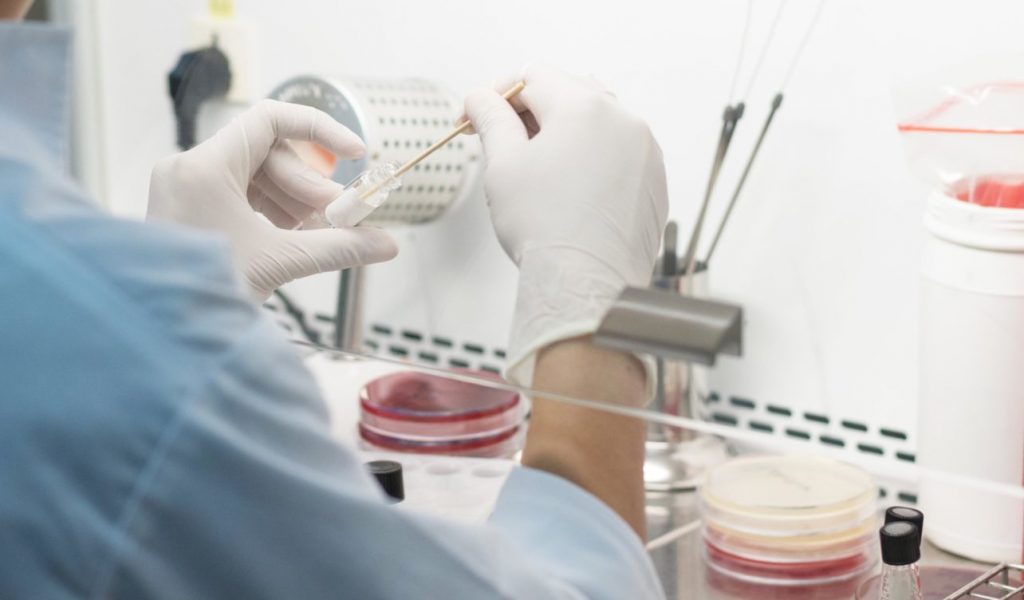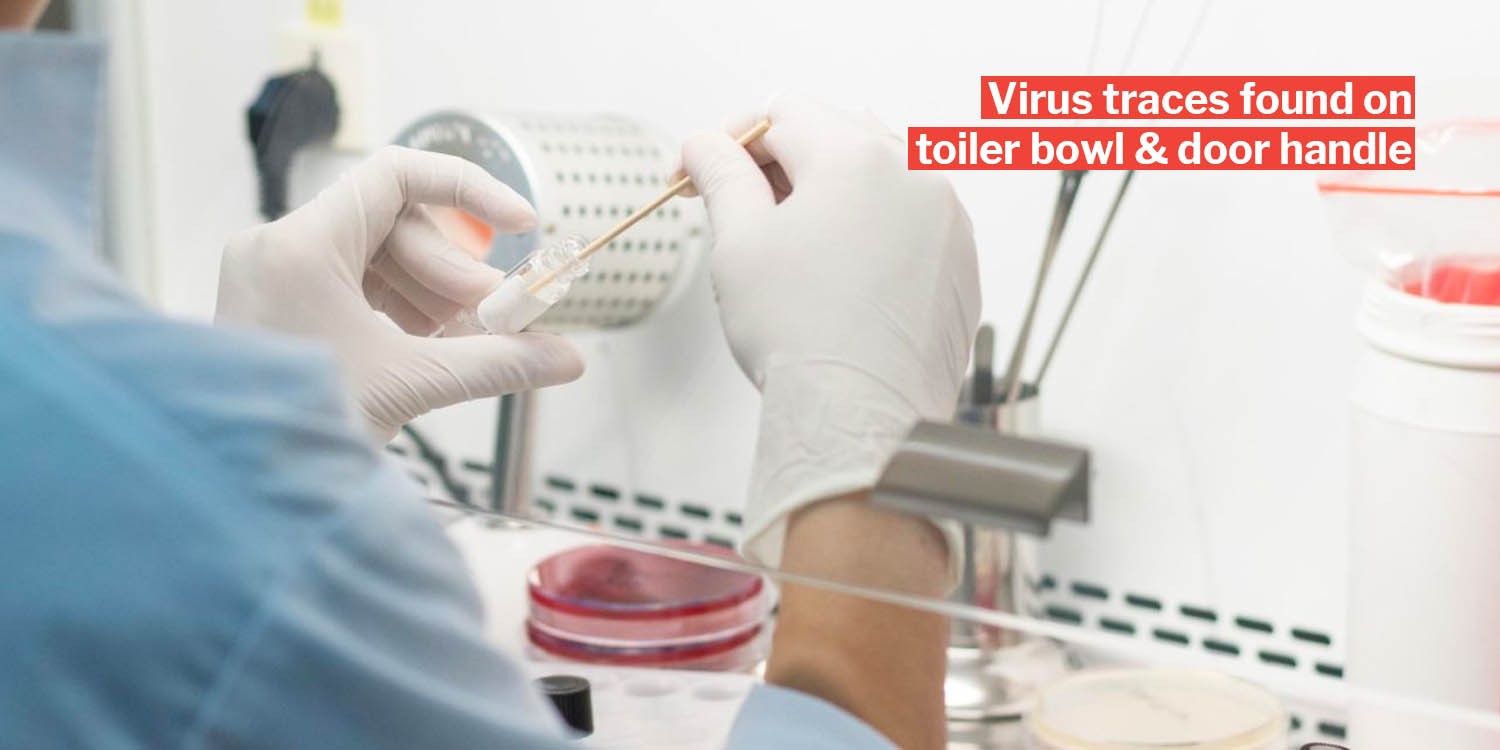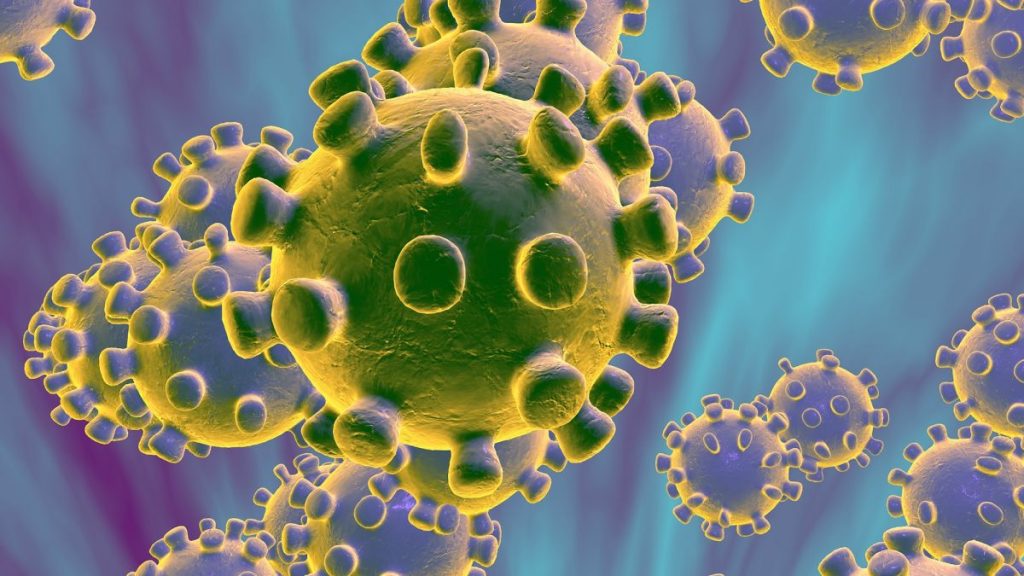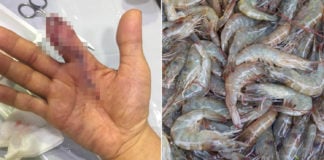Local Study Finds Covid-19 Patients Contaminate Surroundings, As Faeces & Urine Can Pass On Virus
As Covid-19 spreads through the globe, scientists have been racing to find out more about the mysterious disease.
While recent research has found that coronaviruses can stay active for up to 9 days on uncleaned surfaces, and disinfection greatly decreases their survival, a team of Singaporean researchers has found that Covid-19, being a coronavirus, behaves similarly — it lingers on surfaces used by an infected person.
The team from Singapore’s National Centre for Infectious Diseases and DSO National Laboratories, which published their findings on Wednesday (4 Mar), suggested that environmental contamination plays a part in transmission of Covid-19, reported Channel NewsAsia (CNA).
Here’s what they found during their experiment.
Samples of patients’ rooms tested for traces of Covid-19 virus
The team studied 3 patients in isolation between January and February over 2 weeks, collecting samples from their rooms on 5 separate days.
These samples were taken from various furniture and fittings in the room and toilet, including air samples.
 Patients’ rooms were tested for Covid-19
Patients’ rooms were tested for Covid-19
Source
While the room of one patient, who had the mildest symptoms, was sampled before disinfection, the rooms of the other 2 patients were sampled after disinfection.
These two patients had moderate symptoms of coughing and fever, while one suffered shortness of breath and the other had been coughing up lung mucus, according to CNA.
Extensive contamination of room before disinfection, faecal matter may spread virus
The study found that the first patient, whose room was sampled before disinfection, contaminated 13 out of 15 test sites despite having milder symptoms compared with the other 2.
3 out of 5 toilet sites tested positive, namely the sink, toilet bowl and door handle. The contamination of the toilet bowl may be indicative that Covid-19 can be spread via faecal matter.
While the air samples did not carry the virus, it was found in the room’s air vent. This could be an indication that that infectious secretions from patients can be carried by air and end up in vents and other surfaces.
 Image for illustration purposes only
Image for illustration purposes only
Source
From these findings, the study concluded, using the official name of the virus Sars-CoV-2:
Significant environmental contamination by patients with SARS-CoV-2 through respiratory droplets and faecal shedding suggests the environment as a potential medium of transmission and supports the need for strict adherence to environmental and hand hygiene.
Chinese health authorities say faeces and urine can be infectious
As our Singapore team was releasing its findings, China’s National Health Commission also quoted research that found the virus in patients’ stool samples in recognising that faeces and urine can indeed transmit Covid-19, reported the South China Morning Post (SCMP).
This means that contact with infected faecal matter and urine, even as minute airborne particles, could result in transmission of the virus, according to the authorities.
 Faecal matter becomes airborne when you flush
Faecal matter becomes airborne when you flush
Source
While the main way that Covid-19 is passed on is still by being in close proximity of an infected person and respiratory droplets, environmental contamination via aerosol transmission is possible for those in an enclosed space for long periods.
Disinfecting surfaces is highly effective
There is a silver lining, however — Covid-19 can be killed by frequent cleaning of surfaces with disinfectant, CNA reported the research as saying.
This means that as long as you stay vigilant and keep your environment well-cleaned, you will greatly reduce your chances of infection.
Now that we know that disinfecting surfaces actually works, we should keep at it. Maintaining good personal hygiene is the best way to safeguard yourself, so do wash your hands frequently and disinfect surfaces regularly to stay virus-free.
Featured image adapted from Express Micro Science.

Drop us your email so you won't miss the latest news.










